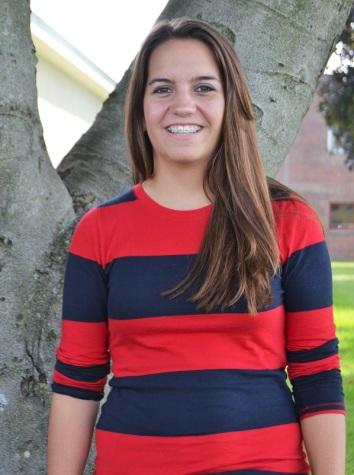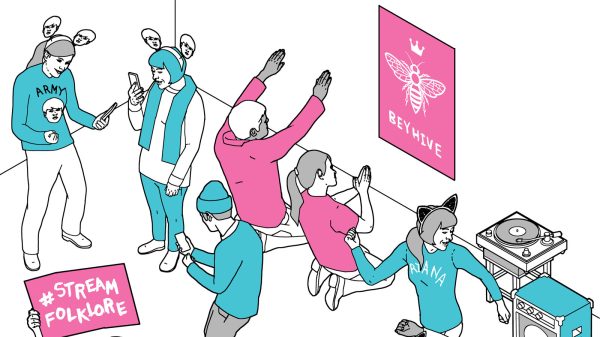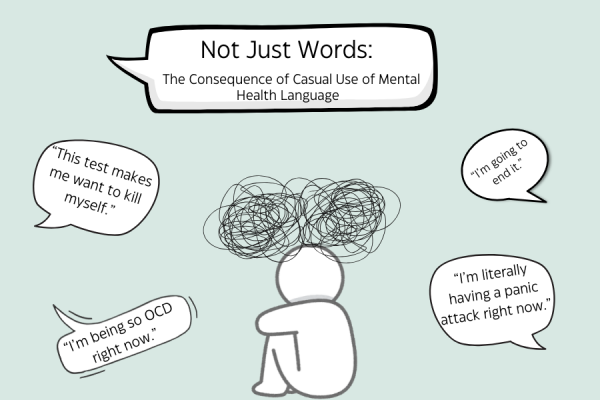Freshman Focus: the importance of freshman year (Editorial)
Is freshman year important? Our writer says yes.
In our recent magazine, we had the wrong author listed This story was written by Sarah Payne, not Rowan Young. We wanted to make sure the right author got the credit, so we’ve posted it here. Infographics were created by Lauren Pantleo.
Many freshmen tend to look at their first year in high school as if it doesn’t affect their future. For many freshmen, it’s a year to have fun and goof off. The common consensus of freshmen seems to be that grades, extracurricular activities, and volunteering don’t matter until your years as an upperclassmen, as those are the years you’re looking at colleges and getting close to graduating.
But high school isn’t meant to be a fun time. I’m not trying to say that you aren’t allowed to have fun, but when you come to school, the purpose is to learn, to develop as a person, especially in regards to future goals. There are many things freshmen can–and should–be doing to prepare themselves for both being an upperclassman and getting into colleges.
Colleges look at many aspects of a student’s life before accepting them to the school. According to Eric Thomas from CollegePrepU, being in the top 50% of your class is a general rule when applying for colleges. Good schools and scholarships are more open to students that are higher in the class. Class rank is important, but ACT and SAT scores are also a major component in college applications and can give you a bit of a boost if you’re not at the top of the class.
 Extracurricular involvement and community service throughout your entire high school career can affect your impression on colleges exponentially. Being involved in several activities (whether they are sports, clubs, publications, or other events) displays that you can manage your time and work hard. Community service demonstrates character and compassion, which are two traits many colleges would like their students to be known for.
Extracurricular involvement and community service throughout your entire high school career can affect your impression on colleges exponentially. Being involved in several activities (whether they are sports, clubs, publications, or other events) displays that you can manage your time and work hard. Community service demonstrates character and compassion, which are two traits many colleges would like their students to be known for.
Course rigor is another large player in the future game. Having all A’s in Option I courses may look good at a glance, but colleges look closely at which courses you’re taking and have taken. If they see that you’ve been passing all your Option I courses with flying colors, it may seem like you either don’t know how or you’re too lazy to challenge yourself academically.
Colleges want students who demonstrate that they can handle a college-level load. Besides, a B in an AP class is ultimately better than an A in an Option I course.
Additionally, slacking off in any class can have a significant affect on future course options. As many students are finding out from the course selection process, most Honors and AP courses require you to have an average of an A- in your current class. Not having these averages shows that you either don’t care or aren’t ready for the rigor of advanced placement courses and will subsequently be put into courses more fitted for you. Not getting into harder courses, as previously mentioned, can affect which colleges and scholarships are open to you.
Freshmen have plenty of ways to stay on top of school and prepare for the future. Planning courses according to what you’re interested in can help you explore those fields before the decision is right on top of you.
Thinking about the future can shape the decisions you make as you go through high school. When you think about the consequences of a choice, you’re more likely to choose the one that will help you further down the road. This forward thinking is crucial to planning ahead, and having a goal to match your future makes staying on track even easier.
Disclaimer: Articles designated as “Editorial” represent the views and opinions of the author, not the 2014-2015 Periscope staff, CHS Administration, or the CHS student body.
Want to help the Herd? Please consider supporting the Periscope program. Your donation will support the student journalists of CHS and allow us to purchase equipment, send students to workshops/camps, and cover our annual website hosting costs.

Sarah Payne is in 10th grade. She works in Periscope as a Perspectives Writer. She reads, writes, and watches movies. Her favorite book is the Hobbit,...

Lauren Pantleo is in 10th grade. Her staff position on Periscope is Perspective Writer. She does track and was a competitive swimmer. Lauren enjoys music...

This is Clara Cozort's third year on staff for Periscope! Clara has taken on the roll of being Art Director and Co-Director of social media. While she...


































































































Julia Pantleo • May 21, 2015 at 12:43 pm
Freshman year seems so long ago! Also, to whoever wrote this article, the graphics are so cool! I love them! They are so creative.
Julia Pantleo • May 21, 2015 at 12:45 pm
haha I just read the byline, good job with the graphics, Lauren!
Leanza Lopez • May 21, 2015 at 12:25 pm
This article is very accurate. Once high school begins it is so important that you start looking ahead from the start. If you don’t you could be caught by surprise when it comes time to apply for colleges, take tests, and plan for the rest of your future. Schools will definitely look at high school as a whole so freshman year is important too.
Bailey Chambers • May 12, 2015 at 10:07 am
I think that freshman year is very important because it sets the tone for your entire high school career. I definitely wish I would have taken it more seriously.
Sarah french • Mar 27, 2015 at 6:14 pm
I think freshman year is just as important as upperclassmen years. Colleges look at all years of schooling. If colleges see you slacked off freshman year, they will be less interested in accepting you. Always try your best no matter what grade you are in! It will all count 🙂